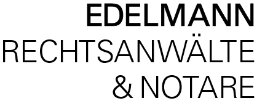Best Foreclosure Lawyers in Switzerland
Share your needs with us, get contacted by law firms.
Free. Takes 2 min.
Free Guide to Hiring a Real Estate Lawyer
Or refine your search by selecting a city:
List of the best lawyers in Switzerland
About Foreclosure Law in Switzerland
Foreclosure in Switzerland is a legal process initiated when a debtor is unable to meet their debt obligations, leading to the seizure and sale of their property to satisfy outstanding debts. Unlike some countries, Switzerland does not allow nonjudicial foreclosure; all foreclosure proceedings must go through the courts. The process is governed by Swiss debt enforcement and bankruptcy laws, specifically the Swiss Debt Enforcement and Bankruptcy Act (DEBA). It provides a structured procedure for both debtors and creditors, ensuring fair practices are adhered to throughout the process.
Why You May Need a Lawyer
There are several situations where legal assistance may be crucial during a foreclosure in Switzerland:
- If you're unsure of your legal rights and obligations.
- If you want to explore possible defenses against foreclosure.
- If there are disputes regarding the debt amount or the validity of the foreclosure.
- If you wish to negotiate a settlement or restructure your debt.
- If you're facing complex foreclosure proceedings involving multiple creditors.
- If you need representation in court.
Engaging a lawyer who specializes in debt enforcement can ensure that your interests are protected and help you navigate the intricate legal landscape efficiently.
Local Laws Overview
The Debt Enforcement and Bankruptcy Act (DEBA) outlines several key steps in the foreclosure process in Switzerland:
- Filing a Payment Order: The creditor must initiate the process by filing a request for a payment order with the competent debt enforcement office.
- Objection by the Debtor: The debtor has ten days to object to the payment order. If no objection is raised, the creditor can proceed with enforcement.
- Provisional or Definitive Withdrawal of Objection: If an objection is raised, the creditor can request the court to provisionally or definitively lift the objection.
- Seizure: If the objection is lifted, the enforcement office may seize the debtor's assets.
- Auction: Seized assets can then be sold at a public auction to satisfy the debt.
- Distribution of Proceeds: The proceeds from the auction are distributed among the creditors according to legal priorities.
Understanding these procedures is crucial for navigating foreclosure in Switzerland effectively.
Frequently Asked Questions
What is the timeline for foreclosure in Switzerland?
The timeline can vary widely depending on various factors such as debtor objections and the court's schedule. It can take several months to over a year to complete.
Can I stop the foreclosure process once it has started?
Yes, you may be able to halt foreclosure by paying the overdue amount or by negotiating an alternative arrangement with your creditor.
What happens if I object to the payment order?
If an objection is raised, the creditor must take legal action to continue the enforcement, which can potentially delay or halt the process.
What are my rights during the foreclosure process?
You have the right to be informed of each step, to object and be heard in court, and to reclaim any surplus proceeds from the auction of your property after debts have been paid.
Can the property be sold privately during foreclosure?
No, foreclosure sales in Switzerland must occur through a public auction conducted by the enforcement office.
Will I still owe money after my property is foreclosed?
If the sale of your property does not cover the full debt, you may still be responsible for any remaining balance.
How are auction proceeds distributed?
Proceeds are distributed according to a legal hierarchy, ensuring secured creditors are paid first, followed by other claimants.
What happens if my foreclosure case is particularly complex?
Complex cases often require legal representation due to the involvement of multiple creditors or international aspects, where specialized legal expertise is critical.
Is there legal aid available for foreclosure cases?
Legal aid may be available depending on your financial situation and the location where the foreclosure proceedings are taking place.
Can foreigners face foreclosure in Switzerland?
Yes, foreigners can face foreclosure under Swiss law if they own property in Switzerland and fail to meet their debt obligations.
Additional Resources
Here are some resources that can provide further assistance and information:
- Swiss Bar Association: They can help you find a qualified lawyer specializing in foreclosure.
- Debt Enforcement Offices: Local offices can offer guidance on legal procedures and requirements.
- Consumer Protection Organizations: These organizations can provide valuable advice and support for debtors.
- Federal Office of Justice: Offers information and updates on Swiss debt enforcement laws.
Next Steps
If you are facing foreclosure in Switzerland and need legal assistance, consider the following steps:
- Consult with a lawyer who has specialization in Swiss foreclosure law to discuss your specific situation.
- Gather all relevant documentation regarding your debts and financial situation.
- Respond promptly to any legal notices or requests for information from creditors or the courts.
- Explore options for negotiation or debt restructuring with creditors.
- Seek advice from governmental or non-profit organizations specializing in debt relief and consumer rights.
Timely action and informed legal counsel can significantly affect the outcome of foreclosure proceedings.
Lawzana helps you find the best lawyers and law firms in Switzerland through a curated and pre-screened list of qualified legal professionals. Our platform offers rankings and detailed profiles of attorneys and law firms, allowing you to compare based on practice areas, including Foreclosure, experience, and client feedback.
Each profile includes a description of the firm's areas of practice, client reviews, team members and partners, year of establishment, spoken languages, office locations, contact information, social media presence, and any published articles or resources. Most firms on our platform speak English and are experienced in both local and international legal matters.
Get a quote from top-rated law firms in Switzerland — quickly, securely, and without unnecessary hassle.
Disclaimer:
The information provided on this page is for general informational purposes only and does not constitute legal advice. While we strive to ensure the accuracy and relevance of the content, legal information may change over time, and interpretations of the law can vary. You should always consult with a qualified legal professional for advice specific to your situation.
We disclaim all liability for actions taken or not taken based on the content of this page. If you believe any information is incorrect or outdated, please contact us, and we will review and update it where appropriate.
Browse foreclosure law firms by city in Switzerland
Refine your search by selecting a city.















